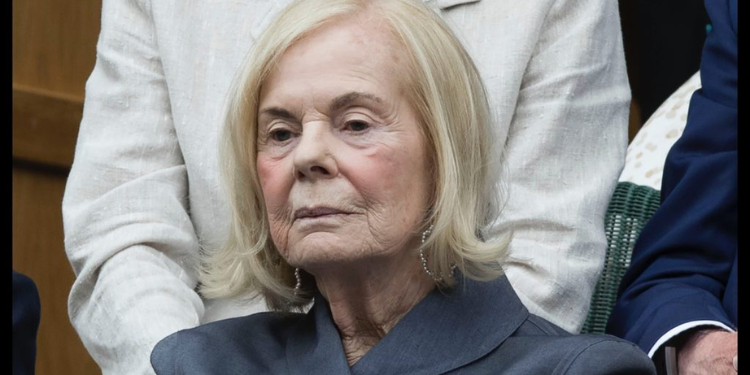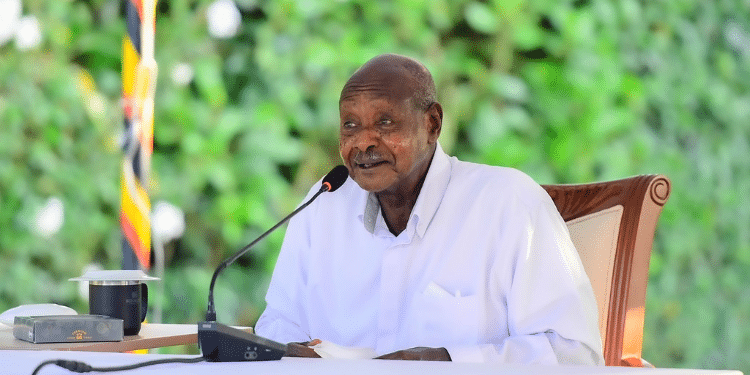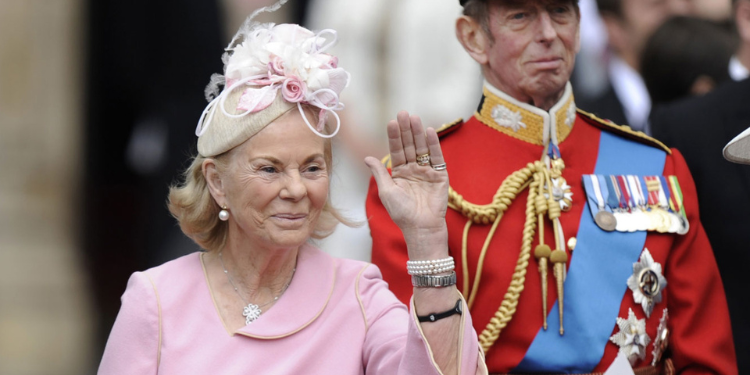The Buckingham Palace has announced the death of Katharine, Duchess of Kent. In a statement, the Royal family announced that Katherine died peacefully in her sleep, aged 92, at Kensington Palace, surrounded by her family.
Since the passing of Queen Elizabeth II in 2022, the Duchess has held the distinction of being the oldest living member of the British royal family.
Duchess of Kent
The Duchess of Kent, born Katharine Lucy Mary Worsley, was a senior member of the British royal family and wife of Prince Edward, Duke of Kent, a first cousin of Queen Elizabeth II.
Early life and education
Katharine was born on February 22, 1933, at Hovingham Hall, her family’s ancestral home in North Yorkshire, England.
She attended Miss Hubbert’s School in York and later went to Runton Hill School in Norfolk.
From an early age, she developed a deep love for music and education. Pursuing her passion, she studied at Queen Margaret’s School, York, and later at the Miss Hubbert’s Finishing School in Oxford.
She later trained as a teacher, focusing on music, a subject that would remain central to her life and charitable work.
On June 8, 1961, Katharine married Prince Edward, Duke of Kent, in a historic royal wedding at York Minster, the first to take place there in over 600 years.
Their union was a significant royal event, attended by members of the British and European royal families.
The couple went on to have three children:
- George Windsor, Earl of St Andrews (born 1962)
- Lady Helen Taylor (born 1964)
- Lord Nicholas Windsor (born 1970)
Katharine also had ten grandchildren.
Also Read: Why Africa’s Chronic Housing Crisis is a Threat to Economic Stability
Despite her royal status, she was known for maintaining a grounded family life and encouraging her children to pursue personal careers outside royal duties.
Public Duties and Contributions
From the early years of her marriage, the Duchess took on numerous public engagements, representing the Queen at events in the UK and abroad, particularly focusing on charities related to young people, education, and music.
In 1971, she became a patron of the Samaritans, where she quietly volunteered, even taking calls anonymously to provide emotional support to those in crisis and earning widespread respect and admiration globally.
In 1994, Katharine made headlines when she converted to Roman Catholicism, becoming the first member of the royal family to do so openly since the Act of Settlement of 1701.
The move was supported by Queen Elizabeth II, showcasing the family’s evolving approach to religion and tradition.
Later, in the late 1990s, she stepped back from full-time royal duties to focus on teaching.
For 13 years, she taught music at a primary school in Hull under the name “Mrs. Kent”, rarely revealing her royal identity.
In 2004, she co-founded Future Talent, a charity dedicated to helping young musicians from less privileged backgrounds, ensuring that financial constraints would not prevent talented children from pursuing their dreams.
Personal Challenges
The Duchess endured personal tragedies, including a miscarriage in 1975 after contracting rubella and the stillbirth of a son, Patrick, in 1977.
These experiences shaped her profound empathy and drove her commitment to causes supporting vulnerable families and children.
Also Read: Trump Renews Clash with ICC After Sanctioning 3 NGOs Over Israel War Crimes
Perhaps her most memorable public moment came at Wimbledon in 1993, when she comforted Czech tennis player Jana Novotná, who had just lost the final match.
The Duchess’s spontaneous hug became a global symbol of compassion, showcasing the human side of the monarchy.
Final Years and Passing
After stepping back from royal duties, Katharine lived quietly, continuing her charitable work and family commitments.
On September 4, 2025, she died peacefully at Kensington Palace.
She was not only a royal figure but also a teacher, mentor, and advocate for young people.
Her decision to live much of her later life outside the public spotlight reflected her commitment to meaningful, hands-on work rather than ceremonial roles.
Katharine’s passing marks the end of an era for the British royal family, closing the chapter on a life devoted to both tradition and progressive change.
Follow our WhatsApp Channel and X Account for real-time news updates.




















































![Senator Allan Chesang And Chanelle Kittony Wed In A Colourful Ceremony [Photos] Trans Nzoia Senator Allan Chesang With Channelle Kittony/Oscar Sudi]( https://thekenyatimescdn-ese7d3e7ghdnbfa9.z01.azurefd.net/prodimages/uploads/2025/11/Trans-Nzoia-Senator-Allan-Chesang-with-Channelle-KittonyOscar-Sudi-360x180.png)






















